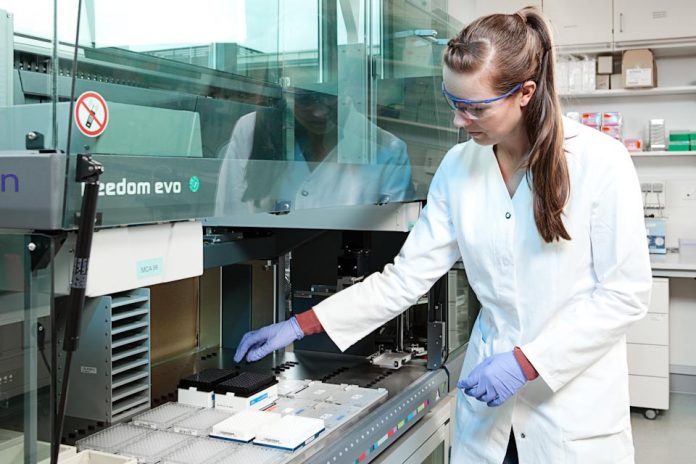
Protagen said today that its SeroTag immune-system profiling technology will be used by University of California, San Francisco (UCSF) researchers to investigate the immuno-profiling of prostate cancer patients treated with checkpoint inhibitors and therapeutic vaccines.
The value of the collaboration was not disclosed.
Through the collaboration, Protagen said, its investigators and those from UCSF aim to provide further insight into using immune-system profiling to predict treatment response and monitor prostate cancer patients for immune-related adverse events (irAEs)—namely a so-called “cold tumor” that is difficult to target with immunotherapies.
“Although cancer immunotherapies can be effective in many different cancers, success in prostate cancer has been more limited. Nevertheless, we know that a small proportion of prostate cancer patients can respond to monotherapies,” Lawrence Fong, M.D., leader of the Cancer Immunotherapy Program in the UCSF Helen Diller Family Comprehensive Cancer Center, said in a statement.
“Immunologic profiling of these patients could enable approaches to patient selection. This collaboration could provide opportunities to accomplish this goal,” added Fong, who is also the UCSF Efim Guzik Distinguished Professor in Cancer Biology.
Protagen’s SeroTag biomarker identification and development engine consists in part of the company data repository of autoantibody signatures from more than 20,000 patient samples. The platform uses Thermo Fisher Scientific’s FDA-approved, bead-based Luminex xMAP multi-analyte profiling technology, designed to enable simultaneous detection and quantitation of multiple secreted proteins, including cytokines, chemokines, growth factors.
According to Protagen, SeroTag can help stratify different cancer and autoimmune disease types and subtypes, to select patients who will respond favorably to treatment, monitor treatment responses, and give advanced warnings of irAEs. Last year, Protagen agreed to use SeroTag to analyze patient samples provided by the NIH’s National Cancer Institute, with both partners teaming up to analyze and interpret data, in order to identify biomarkers that predict therapy responsiveness, monitor patients receiving immunotherapies, and detect irAEs early.
“The strong link between immuno-oncology and autoimmune disease, confirmed by the observed irAEs under immunotherapy, provides us with an opportunity to improve immuno-profiling of cancer patients,” added Protagen CSO Peter Schulz-Knappe, Ph.D. “We feel honored that Dr. Fong and UCSF share this view and we are excited about our collaboration, especially in an indication like prostate cancer that has shown to be difficult to target with immuno-therapies.”
Studies in recent years have made the case for using autoantibodies as relevant biomarkers in autoimmune disease and various cancers, including prostate cancer. In a study published last month in Revue Neurologique, Jérôme Honnorat, M.D., Ph.D., and L.O. Plazat of France’s Hospices Civils de Lyon, Hôpital Neurologique, urged physicians to be aware of autoimmune encephalitis and detect autoantibodies as early as possible to provide optimal medical care, since psychiatric symptoms are likely to predominate at the onset or over the course of the diseases.
As for autoantibodies as biomarkers in prostate cancer, a 2017 Oncotarget study by Wayne State University researchers Avraham Raz, Ph.D., and Elisabeth Heath, M.D., and colleagues, found that prostate-specific antigen (PSA) autoantibodies may alter levels of PSA: “It provides a novel outlook for prostate cancer diagnosis, and should serve as a basis for an all-inclusive diagnostic trial centering on patients with metastasis.”
Raz and colleagues suggested in a December 2016 Oncotarget study that the protein Galectin-3 might be considered as a potential biomarker for prostate cancer since it is positively associated with PSA level.












